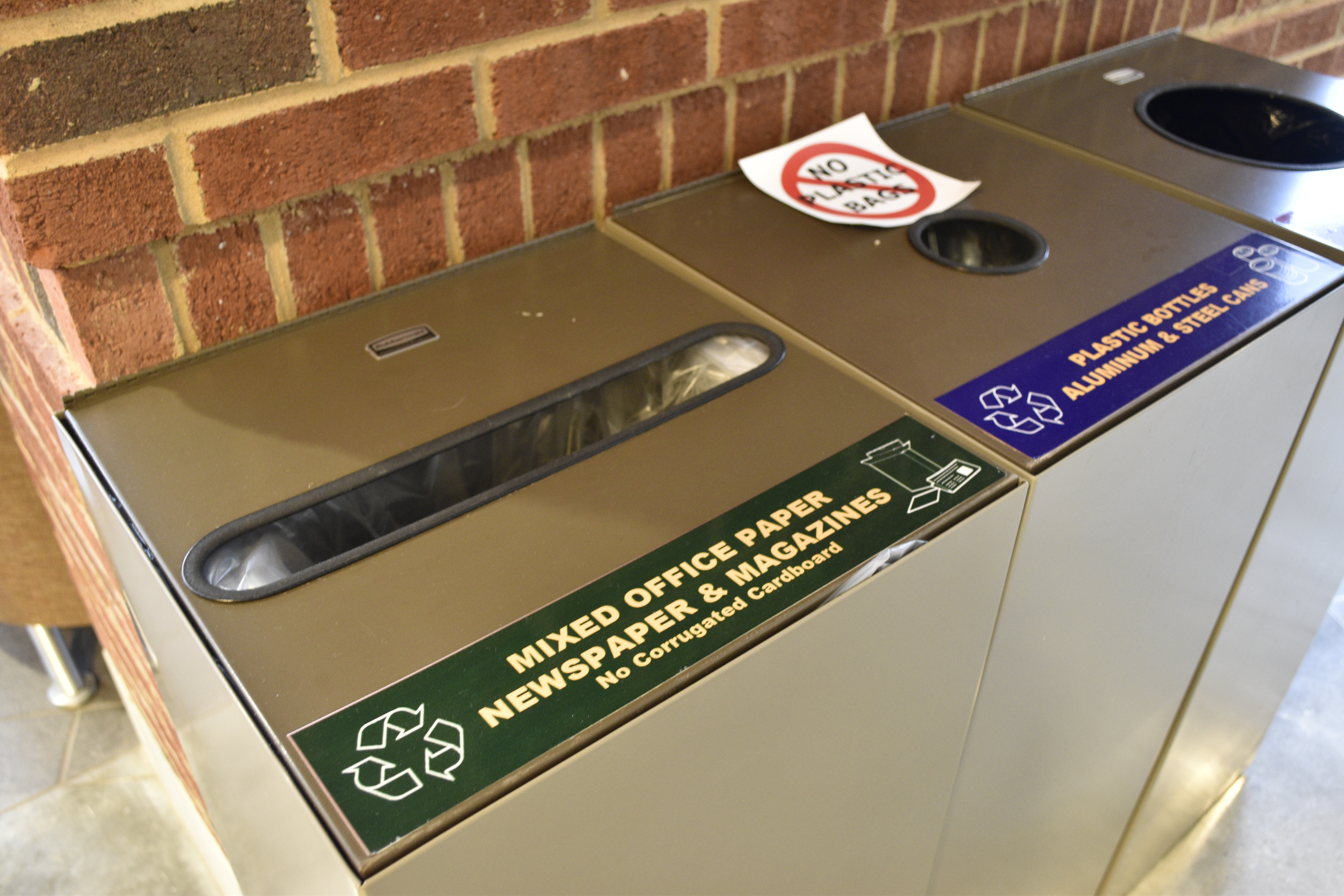There is an increased amount of landfill waste causing a rise in carbon dioxide levels in the atmosphere. Methane, a greenhouse gas like carbon dioxide, is also released from these landfills and is a contributor to climate change.
There are a few ways students can lessen their carbon footprint on campus and, effectively, around the globe.
Students can start by using reusable straws, utensils and water bottles, as well as recycling items in bins located on campus.
According to Eric Goldstein, creator of the Natural Resources Defense Council, “Plastic straws are a first-class litter and pollution problem.”
Straws are recyclable, however, because of their size and shape they can cause operation problems at recycling centers. Consequently, most straws are thrown in landfills and, once there, take over two hundred years to decompose.
Sometimes this landfill trash will end up in the ocean causing problems to the sea life, especifically turtles. Turtles see the plastic straws and, believing they are food, will try to eat them. As a result, straws are likely to get stuck in turtles’ noses, making it difficult for them to breathe.
What can we do to reduce landfill pollution and keep our sea critters safe? One new and trending solution is using reusable or paper straws. This ensures a decreased number in plastic straw consumption.
Danielle Walker, sophomore fine arts major, agrees that reusable metal straws are a step in the right direction, “It’s better for the environment and can save you money … or be put to better use recycling,” she said.
Beneshia Wadlington, senior biology major, talks of why it is so important to support this movement, “I think reusable straws are a great idea for the sustainability of the earth. In my opinion, this is a great first step to begin the process of sustaining the planet. But I think we can do a little more than just changing the type of straws we use,” she said.
You can find and purchase reusable straws and other items from a variety of places, including Amazon, Etsy, Target, and Walmart. Typically retailers sell these eco-friendly products for $20 or less, prices reasonable on a student budget, for products that can ultimately save money in the long run.
Options for recycling are available all over campus
When it comes to recycling, there can be a mix-up of what can and cannot be recycled. Here’s a list of some common things that cannot be recycled: hand soap dispenser pumps, coffee bags, used tissues, greasy pizza boxes, mirrors, and pots and pans.
There are many locations on campus to recycle. Within each dorm room, there are one to two red or blue recycling bins for recycling plastics and paper. These bins should be located in each room either by the entrance or under a desk/bed. In the residence halls there are also recycling rooms on each floor that have larger bins for paper and plastic, in which the smaller bins from the individual dorm rooms can be emptied. There are also many recycling bins throughout the majority of the other buildings on campus, just look around and they can be found.
For more information about being sustainable and recycling on campus contact Chris Johnson, Winthrop’s campus facilities sustainability coordinator.




